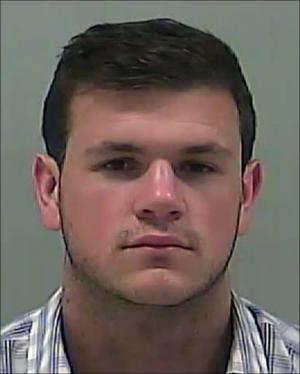 Urban's Doghouse
Urban's Doghouse
A few weeks ago I took a look at several of Urban's novel initiatives like the infamous "circle drill," the Champions Club, and the Winner-Loser days, and found that these are all rooted in a brand of competiton psychology known as achievement goal theory.
These Darwinian, incentive-based programs are all designed to motivate players with the explicit goal of increasing competitiveness. For Meyer, competitiveness itself is a goal.
To further stimulate competitiveness in his players, we looked at how publically rewards his "overstrivers" following public competitions (like the aforementioned circle drill). As I said a few weeks ago,
All of his new traditions are designed to publically recognize winners. It's clear why Meyer opened the spring game with a circle drill in front of all 80,000 fans - besides getting the players hyped for the game, it created easily identifiable winners and losers in front of a large audience. It's easy to miss individual battles being won and lost during scrimmages and games amidst the chaos of a play, but the circle drill focuses everyone's attention in on the outcome of just a single battle.Furthermore, he is extremely candid about his opinions of his best players - enough to publically reward Boren and Simon (annointing Simon as a captain already) in front of the media.
We're seeing more and more just how candid Meyer is willing to be about his players, even when he's recognizing failure instead of successes.
Urban's response to Stoney and Mewhort marking their (rightful) territory outdoors allows us another glimpse at what operational psychological codes he uses. It wasn't enough to simply deal with their punishments in-house, or give them an almost standard single game suspension (regardless of whether or not that may be a worse punishment for them) and call it a day.
Instead, Urban has been vocal in wanting Stoney and Mewhort to feel publically shamed for their mistake.
A recent Dispatch article had a few interesting things from Meyer regarding their punishment. Here's the money quote:
Urban Meyer said he has suspended players for misdeeds before, but usually with no public announcement. Such was not the case late last week with Jake Stoneburner and Jack Mewhort.
"But I thought whenever you embarrass the team in public like they did, then I’m going to let the public know what we did,” the Ohio State coach said yesterday.
Tress was famous for keeping crimes and punishments in-house and close to the vest (pun-intended), but Meyer operates under a different mentality: if you screw up big-time (and let’s not debate how big-time peeing outside is), then the public will know.
This is a big change from Tress, but it’s not without solid psychological support. There's actually quite a bit of psych research related to achievement-goal theory that suggests that publicizing small failures is often key to preventing larger problems in the future.
 Stoney's mugshot
Stoney's mugshot
In their working paper "Failing to learn and learning to fail (intelligently): How great organizations put failure to work to improve and innovate," Dr. Cannon and Edmondson elaborate on public shaming as a way to deal with failure:
...small failures are often the key “early warning signs” that could provide a wake up call needed to avert disaster down the road. Social system barriers are often the key driver of this kind of problem. Rather than acknowledge and address a small failure, individuals have a tendency to deny the failure, distort the reality of the failure, or cover it up, and groups and organizations have the tendency to suppress awareness of failures.
It's pretty clear that Urban wants to avoid this suppression of failure at Ohio State. While he often got a bad rap at Florida for letting star players slide, it's clear that he's seeking to set a harsh and public precedent here by stripping the two of their scholarships over the summer.
The point here really isn't whether or not the punishment (or the crime, for that matter) is as bad as it could be. Many have argued that sitting key players during games would be worse. What's more important to me is that Urban is making the punishment - and his disappointment - public.
He's willing to make their suspensions public even though - or maybe especially because - the two are senior team leaders. Sure, it's not that costly to the team as a whole, as the two will just miss reps with the team this summer, but it is costly to the players themselves, and it is public and embarrasing.
Mewhort has already experienced this embarrasement:
If OSU supporters widely viewed the June 2 incident as trivial, it was not treated as such by the players.
Mewhort asked his father, "Are the fans going to hate me?" He felt he let down his teammates, coaches, and family, including his great-grandmother.
Essentially, it amounts to putting severed heads up on stakes surrounding a castle (I see you, other Game of Thrones fans) - a very public, albeit less final, acknowledgement of disappointment and failure that will hopefully ward off worse cases in the future.
Open all references in tabs: [1 - 6]